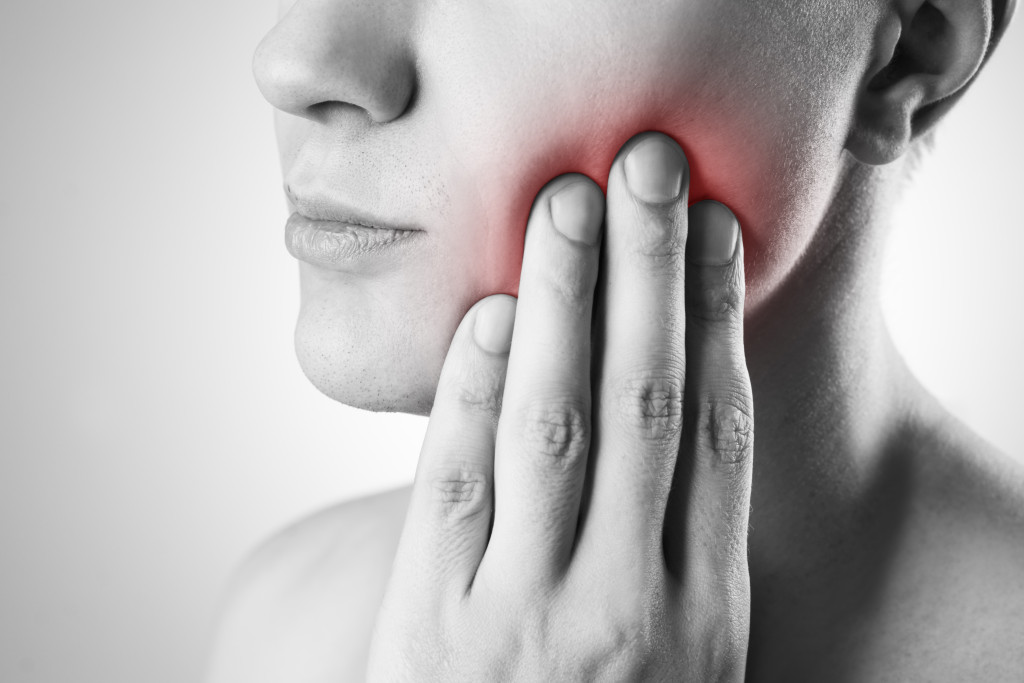A sore mouth is never fun. Not only is it uncomfortable, but it can also make it difficult to eat and drink. There are many different reasons you might have a sore mouth, but luckily there are also many different ways to deal with it. Here are five reasons for sore mouth and five ways to deal with it.
Dehydration
One of the most common reasons for a sore mouth is dehydration. When your body lacks fluids, saliva production decreases, leading to a dry and irritated mouth. If you’re not drinking enough water, you might notice that your mouth feels dry, sticky, or cottony. Your lips might also be chapped. To combat this, you must avoid coffee, alcohol, and cigarettes, which can all contribute to dehydration.
You also need to drink enough fluids every day. The right amount of daily fluid intake depends on many factors, such as age, activity level, and climate. However, a general rule of thumb is to drink 3.7 liters of water per day and 2.7 liters per day for women. But you might need more or less depending on various factors stated above. Also, make sure to rehydrate every time you go exercising.
Stress
Believe it or not, stress can significantly impact your oral health. When stressed, your immune system weakens, making you more susceptible to infection. Stress can also cause you to grind your teeth or bite your lips and tongue, leading to sores. Here are various ways to deal with it:
Deal With Bruxism
If you’re stressed, there’s a good chance you may suffer from bruxism, which is the grinding or clenching of teeth. This can lead to several problems, including headaches, jaw pain, and mouth sores. To help deal with this condition, you can use mouthguards and reduce stress.
Reduce Stress
If the pain in your mouth isn’t caused by bruxism, you must deal with stress head-on. You can do this by exercising, meditating, and spending time with friends and family.

Vitamin Deficiency
If you’re not getting enough vitamins and minerals, it can lead to a host of problems, including a sore mouth. Vitamin B12 and folic acid are essential for maintaining healthy oral tissue. Here are some ways you can deal with vitamin deficiency:
Healthy Diet
Eating a healthy diet is the best way to get your body’s vitamins and minerals. Make sure to include plenty of leafy greens, fruits, and whole grains in your diet.
Supplements
You might need to take supplements if you’re not getting enough vitamins from your diet. However, speaking with a doctor before starting any supplement regimen is best.
Infection
If you have a bacterial or viral infection, it can cause inflammation and irritation in your mouth. The most common infections that cause a sore mouth are cold sores (caused by the herpes virus) and canker sores (ulcers that form inside your mouth). Here are some ways you can deal with this:
Implants
The space between your teeth is where food can get caught and lead to an infection. One way to avoid this is by getting dental implants, artificial teeth placed in an empty space. These implants are resilient enough to withstand the daily wear and tear of eating and drinking. They are also far better than dentures or crowns.
Avoid Smoking
Smoking can irritate the tissue in your mouth and make you more susceptible to infection. If you have a sore mouth, it’s best to avoid smoking altogether.
Oral Hygiene
Poor oral hygiene is another common reason for a sore mouth. When plaque and bacteria build up in your mouth, it can lead to gingivitis, an inflammation of the gums. If left untreated, gingivitis can progress into periodontitis, a more serious condition that can damage the bones and tissues that support your teeth.
Allergies
If you’re allergic to something in your environment, it can cause a sore mouth. The most common culprit is pollen, but dust, pet dander, and certain foods can also trigger an allergic reaction. To deal with this, you must identify your allergies and avoid the triggers. You might also need to take medication to control the symptoms.
Oral Thrush
Oral thrush is a yeast infection that forms in the mouth when there is an overgrowth of the Candida albicans fungus. Oral thrush can cause white lesions on your tongue and cheeks and make eating and drinking painful. To combat this condition, ask your doctor about antifungal medications you can take orally or apply directly to the affected area.
If you have a sore mouth, there are many possible causes. Luckily, there are many different ways to deal with a sore mouth. By following the tips above, you can find relief from your symptoms and get back to enjoying your life.





